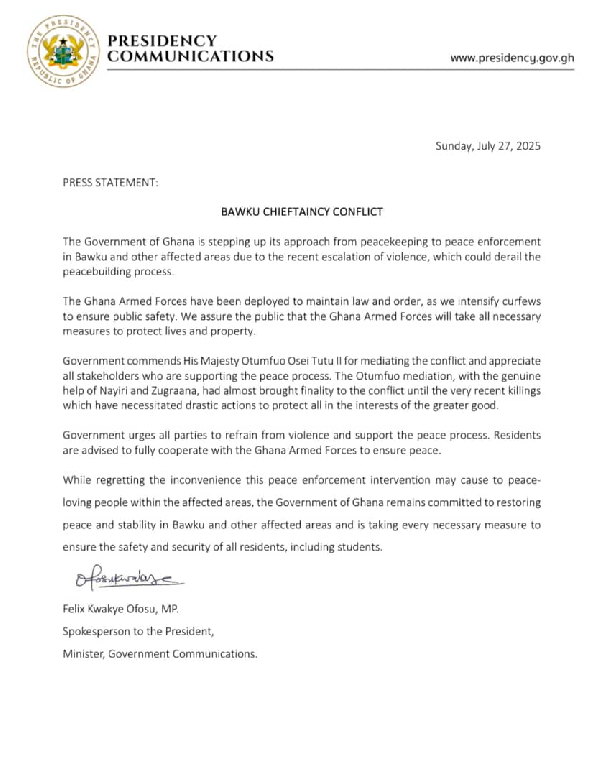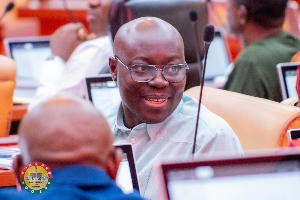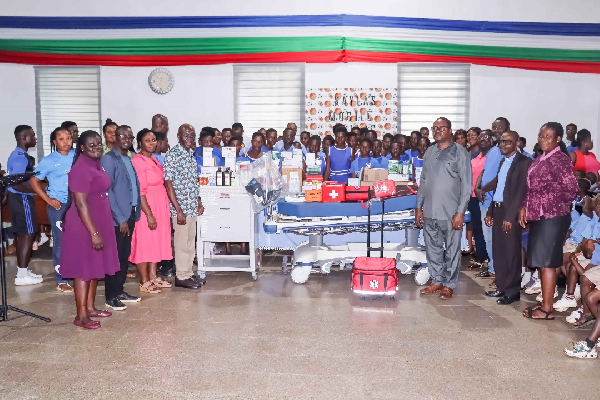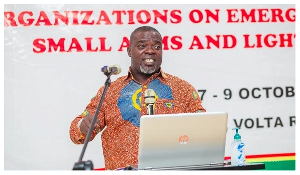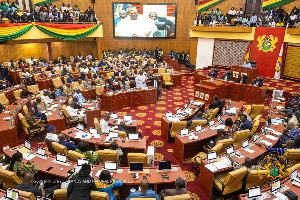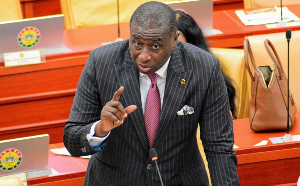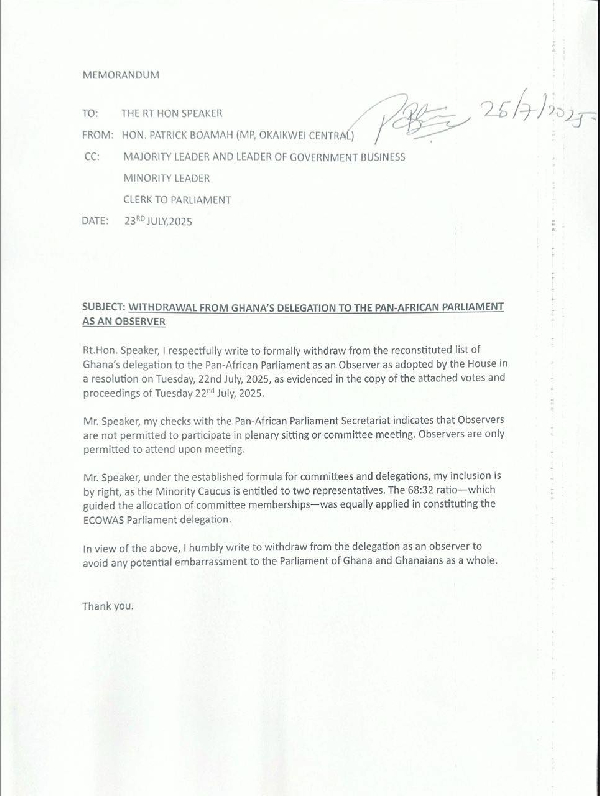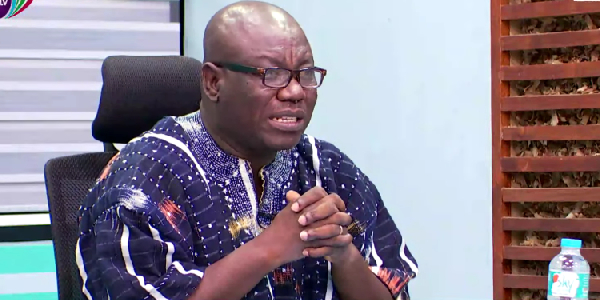The Question That Shocked Young People
On Friday, July 25, 2025, a simple question during Ghana’s parliamentary vetting proceedings sparked a conversation that would resonate across continents. When Jerry Ahmed Shaib, MP for Weija-Gbawe, asked Deputy Minister-designate for Communication, Digital Technology and Innovations Mohammed Adams Sukparu to define coding, the response stunned the committee.
“Coding is providing training for young men and women in the IT space,” Sukparu answered confidently. “Training them in web design, training them in how to build software, and what have you. Basically, this is what coding is, Mr. Chairman.”
The visible surprise on committee members’ faces and Shaib’s gentle correction—”You should understand coding some more, but I wish you well”—captured a moment that transcends one individual’s knowledge gap. It illuminated a fundamental challenge facing not just Ghana, but governments worldwide: How do we ensure our leaders understand the digital tools shaping our future?
A Global Digital Literacy Crisis Unfolds
The irony of Sukparu’s confusion is particularly striking given Ghana’s ambitious One Million Coders Programme, launched just three months earlier. Within 48 hours of its launch, the programme received over 91,000 applications, demonstrating young Ghanaians’ hunger for the very skills their deputy minister couldn’t properly define.
This incident reflects a wider global challenge. According to 2025 digital literacy statistics, only 40% of people worldwide are digitally literate, despite 92% of jobs now requiring digital skills.
The disconnect is particularly pronounced in leadership positions, where senior officials often lack the digital fluency to understand the technologies they’re meant to govern.
The Millennial Management Paradox
As this digital divide widens, a fascinating shift is occurring in the global workforce. According to Glassdoor’s 2025 Worklife Trends report, millennials officially became the largest cohort of managers in the American workforce in June 2025, overtaking Generation X. This generational handoff marks more than a demographic curiosity, it signals a fundamental shift in how organisations are led.
Yet this transition comes with a price. Glassdoor reports that mentions of burnout in employee reviews have spiked 73% year-over-year as of May 2025.
The MetLife 2021 study found that 42% of millennial managers report being burned out, compared to just 27% of Gen X and 21% of Baby Boomers. As lead economist Daniel Zhao notes, millennial managers are “stuck between a rock and a hard place,” expected to demonstrate emotional intelligence while managing unprecedented stress levels.
Africa’s Digital Champions Show the Way
While Ghana grapples with its digital literacy challenge, other African nations are pioneering innovative approaches that could revolutionise how we bridge generational and knowledge divides.
Rwanda’s Transformation Under Paula Ingabire
Paula Ingabire, Rwanda’s 41-year-old Minister of ICT and Innovation, demonstrates what digitally literate leadership looks like. This MIT-educated engineer has positioned Rwanda as “The Digital Heart of Africa” through initiatives that would be impossible without deep technical understanding.
Under her leadership, Rwanda’s digital literacy rate jumped from 8.9% to 53%, with a target of 100% by 2029. The country’s Irembo e-governance platform now serves 9+ million users with 106 digitised public services, saving citizens 23 million hours previously spent in government offices.
“We see ourselves as a proof-of-concept destination for innovative companies and start-ups to launch, test, and scale,” Ingabire told the World Economic Forum. Named to Apolitical’s Government AI 100 list for 2025, she advocates for inclusive digital transformation that brings everyone along, not just the tech-savvy.
Nigeria’s Ambitious Vision
Dr. Bosun Tijani, Nigeria’s Minister of Communications, Innovation and Digital Economy, has set audacious targets: achieving 70% digital literacy by 2027 and 95% by 2030. His flagship 3 Million Technical Talent (3MTT) programme attracted 1.7 million applications, with support from MTN Nigeria (₦3 billion) and Google.org (₦2.8 billion).
“Digital literacy doesn’t mean that 90% of Nigerians will become tech talents,” Tijani explains, “but they would be given the foundation to choose to participate in the digital economy.” This nuanced understanding—knowing that not everyone needs to code, but leaders must understand what coding enables—could serve as a model for addressing leadership gaps globally.
The Corporate Solution: Reverse Mentoring Takes Centre Stage
The answer to bridging this digital divide may lie in approaches pioneered by corporations facing similar generational challenges. Jack Welch revolutionised General Electric in 1999 by pairing 500 senior executives with employees under 25 to learn about the internet and personal computing. This “reverse mentoring” concept has evolved into a powerful tool for bridging knowledge gaps.
BNY Mellon’s Pershing division demonstrates the impact: their reverse mentoring programme achieved a 96% retention rate among participating millennials from 2013-2016, well above industry averages. Companies like Estée Lauder, PwC, and Citibank have adapted the model to address everything from digital skills to diversity and inclusion.
Technology Transformation Accelerates Globally
As African nations grapple with digital literacy, the global technology landscape continues its relentless advance. McKinsey’s 2025 technology trends outlook highlights AI as both a powerful technology wave and a foundational amplifier of other trends, accelerating progress in robotics, bioengineering, and energy systems.
The urgency is underscored by recent security incidents. A major vulnerability in Microsoft SharePoint has compromised government agencies and businesses globally, with tens of thousands of servers at risk and no patch yet available. Such incidents highlight why leaders must understand not just what technology can do, but also its vulnerabilities and limitations.
Meanwhile, Samsung’s Galaxy Unpacked 2025 showcased how AI is being woven into the fabric of daily life, while Deloitte’s Tech Trends 2025 predicts we’ll eventually think of AI “in the same way that we think of HTTP or electricity”—not as something we actively use, but as infrastructure that makes everything work better.
The Path Forward: Learning from Success
For Ghana, the solution involves multiple approaches:
1. Mandatory Digital Literacy for Senior Officials
Not everyone needs to code, but everyone making technology policy should understand what coding enables. Nigeria’s DL4ALL programme targets 70% digital literacy by 2027 through practical training in six areas: device operation, information literacy, communication, content creation, online safety, and problem-solving.
2. Reverse Mentoring Programmes
Following corporate examples, pairing tech-savvy younger officials with senior leaders creates structured learning exchanges. As AIHR’s guide notes, successful programmes like Heineken’s since 2021 help senior marketers understand emerging consumer trends and social media preferences.
3. Cultural Respect in Digital Transformation
The millennial management approach emphasises psychological safety and continuous learning. As recent burnout research shows, 82% of employees are at risk of burnout in 2025, with Gen Z and millennials experiencing peak burnout at age 25 rather than the traditional 42.
4. Measuring What Matters
Track digital literacy among decision-makers, not just citizens. Rwanda’s approach under Ingabire shows that success requires both top-down policy and bottom-up implementation, with Digital Ambassadors training over 27,000 citizens across all 30 districts since 2017.
The Millennial Bridge: Promise and Peril
The rise of millennial managers offers both opportunity and challenge. While they bring digital fluency and collaborative leadership styles, 84% of millennials report experiencing burnout in their current roles. The Society for Human Resource Management notes that 44% of US employees feel burned out at work, with 51% feeling “used up” at the end of the workday.
This burnout crisis, traced back to Anne Helen Petersen’s viral 2019 Buzzfeed article that coined the term “millennial burnout,” reflects the generation’s experience of being born into a constant work culture. Now, as they become managers, the average number of direct reports has almost doubled, piling additional stress onto an already burned-out generation.
Yet these same stressed millennials are implementing the solutions. Reverse mentoring programmes at companies like IBM, PwC, and Unilever demonstrate how younger employees can share insights on everything from LGBTQ+ experiences to consumer trends, while gaining exposure to senior leadership.
A Continental Imperative
As Africa positions itself for digital leadership, incidents like Ghana’s serve as important checkpoints. They remind us that transformation requires more than infrastructure and programmes—it demands leaders who understand the tools of transformation.
The examples of Ingabire, Tijani, and Kenya’s Ambassador Philip Thigo (Africa’s first Special Envoy on Technology) prove that Africa has such leaders. Their success shows that with the right approach, digital literacy gaps can be bridged effectively and authentically.
The deputy minister’s confusion about coding may have been embarrassing, but it’s also an opportunity. By learning from African digital leaders and millennial management approaches, Ghana—and other nations facing similar challenges—can transform digital literacy from a leadership liability into a competitive advantage.
As Deloitte’s 2025 Gen Z and Millennial Survey reveals, 74% of Gen Zs and 77% of millennials believe generative AI will impact their work within the next year. They’re focused on developing both technical and soft skills, seeking careers that balance money, meaning, and wellbeing.
The question “What is coding?” may have stumped one nominee, but it sparked a conversation Africa—and the world—needs to have. As governments launch digital initiatives from Kenya’s Silicon Savannah to Egypt’s Digital Egypt to South Africa’s 4IR strategy, ensuring leaders understand these technologies isn’t just important; it’s imperative.
Because in the end, coding isn’t just about training young people in IT. It’s about writing Africa’s digital future—one line of progress at a time. And for that to happen, those holding the pen must at least understand what they’re writing with.
DISCLAIMER: The Views, Comments, Opinions, Contributions and Statements made by Readers and Contributors on this platform do not necessarily represent the views or policy of Multimedia Group Limited.
DISCLAIMER: The Views, Comments, Opinions, Contributions and Statements made by Readers and Contributors on this platform do not necessarily represent the views or policy of Multimedia Group Limited.










